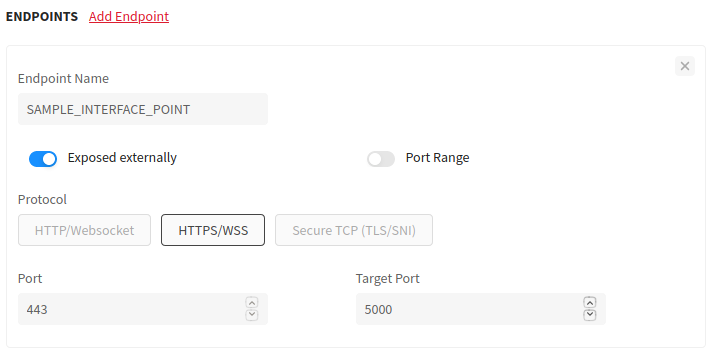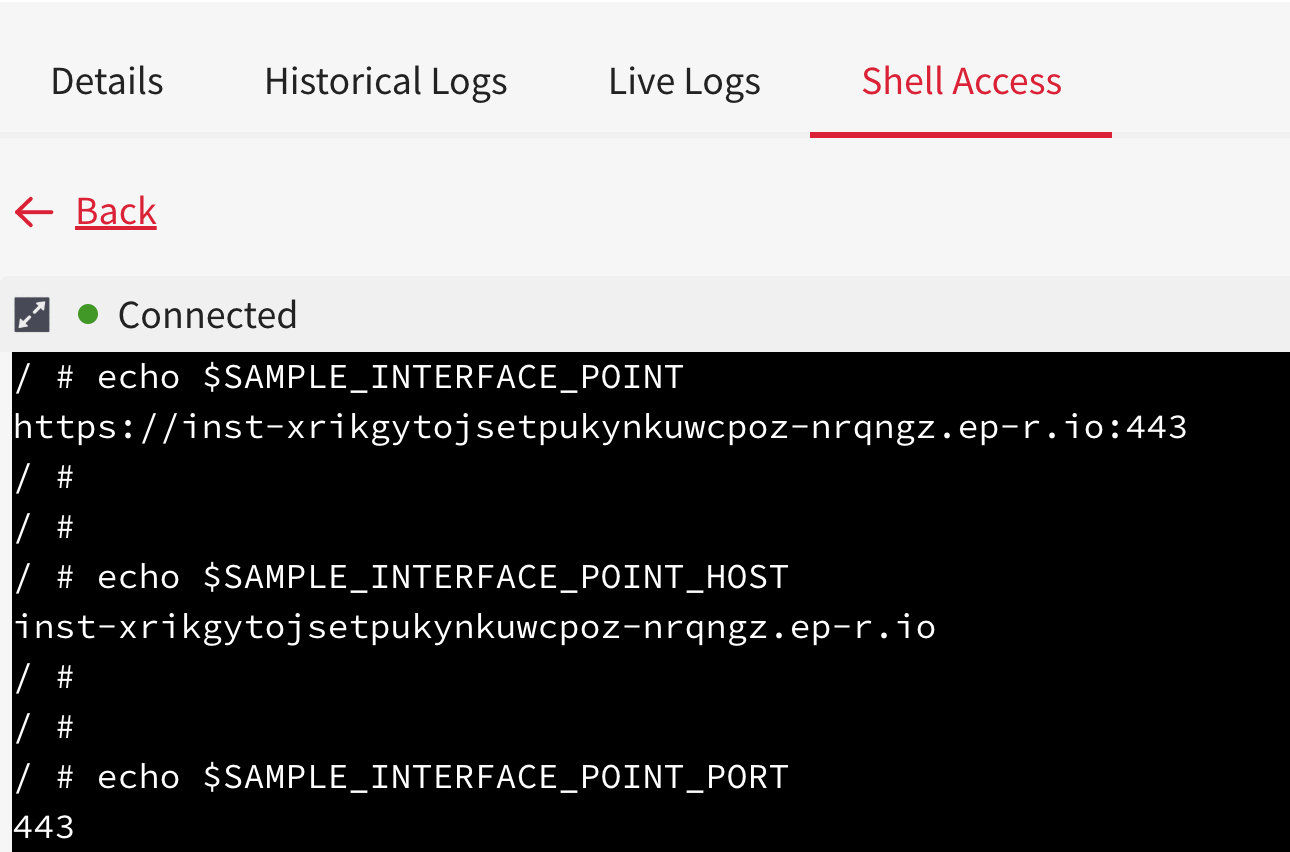In this article
Help us make these docs great!
All rapyuta.io docs are open source. See something that's wrong or unclear? Submit a pull request.
Make a contributionStandard Web Protocols
rapyuta.io facilitates the communication for common protocols such as HTTP, WebSocket, TLS with the help of Link Injection between the dependent deployments
Link injection is the mechanism rapyuta.io relies on for composition features corresponding to exposed network endpoints.
Link Injection
For instance, if you have a deployment P running on rapyuta.io that exposes a network endpoint defined as SAMPLE_ENDPOINT with the URL address: https://inst-awesomesauce-url.apps.rapyuta.io:443 the rapyuta.io platform can use the above URL to determine the corresponding HOST and PORT values as follows:
- HOST: inst-awesomesauce-url.apps.rapyuta.io
- PORT: 443
rapyuta.io can now make this information available to any other resource it manages like deployments.
Consider another deployment, for instance, C such that the user deploying C selects P as a dependent deployment. To link deployments a parent-child, the relationship is established between deployments P (the parent) and C (the child).
rapyuta.io will make exposed endpoint information available to C (the child) by constructing and injecting environment variables corresponding to each endpoint exposed by P (the parent) using the following rule.
- <ENDPOINT_NAME>
- <ENDPOINT_NAME>_HOST
- <ENDPOINT_NAME>_PORT
Drawing from the aforementioned example this would correspond to following environment variables and their corresponding values:
- SAMPLE_ENDPOINT : https://inst-awesomesauce-url.apps.rapyuta.io:443
- SAMPLE_ENDPOINT_HOST : inst-awesomesauce-url.apps.rapyuta.io
- SAMPLE_ENDPOINT_PORT : 443
The developer of the package running in C can now access these environment variables in code.
For example, the developer would access the value of the SAMPLE_ENDPOINT in a Python application using
import os
os.getenv('SAMPLE_ENDPOINT')
os.getenv('SAMPLE_ENDPOINT_HOST')
os.getenv('SAMPLE_ENDPOINT_PORT')
Self Injection
rapyuta.io injects network endpoints as environment variables during the deployment phase.
Suppose that a package defines a network endpoint, SAMPLE_INTERFACE_POINT, which is externally exposed. The port and target port are set to 443 and 5000, respectively. When the package is deployed, rapyuta.io injects SAMPLE_INTERFACE_POINT as an environment variable. You can access all of the environment variables in a deployment via the Shell Access option.

Click on Shell Access > SSH to open a Linux terminal of the deployment. Enter the following commands the network endpoint, its host URL address, and port.
echo $SAMPLE_INTERFACE_POINT
echo $SAMPLE_INTERFACE_POINT_HOST
echo $SAMPLE_INTERFACE_POINT_PORT
